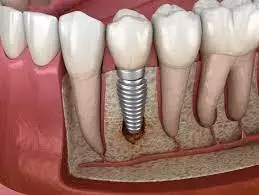- Home
- Medical news & Guidelines
- Anesthesiology
- Cardiology and CTVS
- Critical Care
- Dentistry
- Dermatology
- Diabetes and Endocrinology
- ENT
- Gastroenterology
- Medicine
- Nephrology
- Neurology
- Obstretics-Gynaecology
- Oncology
- Ophthalmology
- Orthopaedics
- Pediatrics-Neonatology
- Psychiatry
- Pulmonology
- Radiology
- Surgery
- Urology
- Laboratory Medicine
- Diet
- Nursing
- Paramedical
- Physiotherapy
- Health news
- Fact Check
- Bone Health Fact Check
- Brain Health Fact Check
- Cancer Related Fact Check
- Child Care Fact Check
- Dental and oral health fact check
- Diabetes and metabolic health fact check
- Diet and Nutrition Fact Check
- Eye and ENT Care Fact Check
- Fitness fact check
- Gut health fact check
- Heart health fact check
- Kidney health fact check
- Medical education fact check
- Men's health fact check
- Respiratory fact check
- Skin and hair care fact check
- Vaccine and Immunization fact check
- Women's health fact check
- AYUSH
- State News
- Andaman and Nicobar Islands
- Andhra Pradesh
- Arunachal Pradesh
- Assam
- Bihar
- Chandigarh
- Chattisgarh
- Dadra and Nagar Haveli
- Daman and Diu
- Delhi
- Goa
- Gujarat
- Haryana
- Himachal Pradesh
- Jammu & Kashmir
- Jharkhand
- Karnataka
- Kerala
- Ladakh
- Lakshadweep
- Madhya Pradesh
- Maharashtra
- Manipur
- Meghalaya
- Mizoram
- Nagaland
- Odisha
- Puducherry
- Punjab
- Rajasthan
- Sikkim
- Tamil Nadu
- Telangana
- Tripura
- Uttar Pradesh
- Uttrakhand
- West Bengal
- Medical Education
- Industry
Dental restorative materials that contain QASi have sustained antibacterial properties: study

Dental restorative materials that contain QASi have sustained antibacterial properties suggests a recent study published in The Journal of the American Dental Association
This narrative review addresses dental restorative materials with sustained antibacterial action, especially those containing quaternary ammonium compounds. Secondary caries occurs around restorations, causing further loss of mineral and breakdown of the restoration. Lesions adjacent to restorations account for more than 40% of needed restorations. Restorative materials with antibacterial properties will potentially solve this problem. Several groups are researching composite restorative materials that incorporate antibacterial agents. These agents are mostly exhausted over time. Newer studies involve materials that incorporate antibacterial microparticles that remain active and do not leach out.
Results:
One such antibacterial agent, quaternary ammonium coupled with inorganic silica into minute particles (QASi), has been studied in the laboratory and in humans. QASi particles incorporated into dental materials retain their antibacterial action over time without leaching or loss of activity.
A clinical in situ study in humans using dental composite containing QASi resulted in highly significantly less demineralization in the adjacent enamel than the control composite material.
Dental restorative materials that contain QASi have sustained antibacterial properties, have mechanical properties comparable to those of presently marketed materials, and have been cleared by the US Food and Drug Administration. Clinical studies have shown that composites incorporating QASi have the potential to markedly reduce the occurrence of caries around restorations. Because caries around restorations is a major problem, restorative materials with sustained antibacterial properties will have an important effect in reducing secondary caries around restorations.
Key Words
Caries prevention, antibacterial restorative materials, secondary caries, quaternary ammonium compounds, John D.B. Featherstone,
John D.B. Featherstone. Dental restorative materials containing quaternary ammonium compounds have sustained antibacterial action. The Journal of the American Dental Association. Published: October 20, 2022. DOI: https://doi.org/10.1016/j.adaj.2022.09.006
Dr. Shravani Dali has completed her BDS from Pravara institute of medical sciences, loni. Following which she extensively worked in the healthcare sector for 2+ years. She has been actively involved in writing blogs in field of health and wellness. Currently she is pursuing her Masters of public health-health administration from Tata institute of social sciences. She can be contacted at editorial@medicaldialogues.in.
Dr Kamal Kant Kohli-MBBS, DTCD- a chest specialist with more than 30 years of practice and a flair for writing clinical articles, Dr Kamal Kant Kohli joined Medical Dialogues as a Chief Editor of Medical News. Besides writing articles, as an editor, he proofreads and verifies all the medical content published on Medical Dialogues including those coming from journals, studies,medical conferences,guidelines etc. Email: drkohli@medicaldialogues.in. Contact no. 011-43720751


